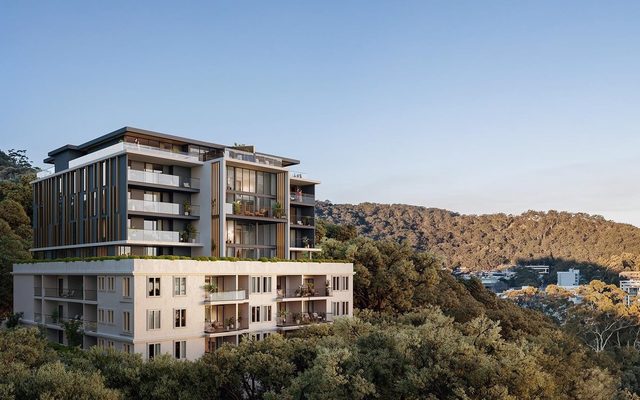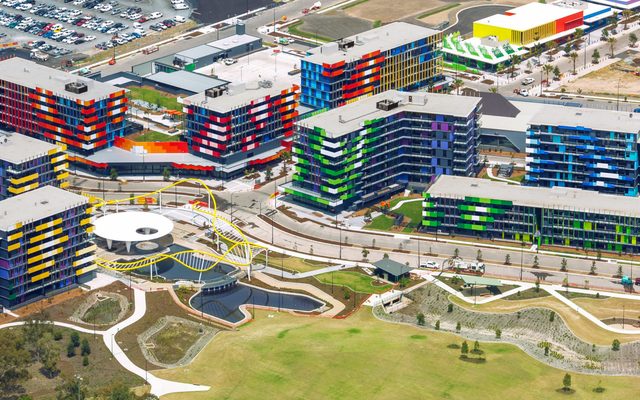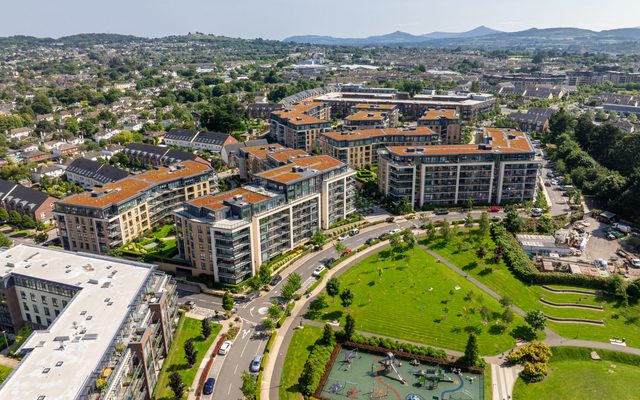This article is from the Australian Property Journal archive
THE country’s largest office landlord, Dexus has seen portfolio value growth slashed and funds from operations sag, as COVID-19 kept employees away from the workplace and forced businesses to rethink their real estate allocations.
The group’s share price touched $8.74 shortly after opening but at close had dropped to $8.42 for a second time during the day, down 3.55%.
Dexus booked an interim net profit after tax of $442.9 million, but this was down 55.5% due to lower valuation gains. Net revaluation gains of investment properties was $160.8 million, $563.6 million lower than the previous corresponding period.
At the end of the half, 111 of its 122 office and industrial properties were independently valued by external valuers. Most of the valuation uplift was seen across the industrial portfolio which increased by 4.8%, with the office portfolio remaining in line with prior book values as a result of softer valuer assumptions. This was offset by leasing at some assets.
While face rents remain largely unchanged in the core CBD markets, Dexus said, effective rents are under pressure as incentives continue to increase.
“Given the better than expected market occupancy levels and strength of key leading indicators, Dexus expects incentives to moderate in some markets over the next 12 months.”
Average incentives grew from 17.1% to 22.0% over the six months.
Rent collections were at 96%. Rent relief measures and provisions for expected credit losses dragged office portfolio like-for-like income growth to negative 4.6% during the half. It was up 1.5% excluding those impacts.
Underlying funds from operations per security was down 5.6% of 30.1 cents as a result of the impact of rent relief provided, divestments including the second tranche of the Dexus Australian Logistics Trust portfolio, and a reduction in the contribution from management operations.
Dexus’s office portfolio is heavily weighted the major markets of Sydney and Melbourne, both of which have seen vacancies spike over the past 12 months. Sydney’s office occupancy remains at 45% and Melbourne’s at just 31%, according to a new Property Council survey.
Aside from Melbourne, all other capital cities have seen more than 60% of workers return to the office.
The weighted average capitalisation rate tightened four basis points over the period to 5.01%. Office portfolio WACR firmed two basis points to 4.95%, and industrial portfolio tightened 30 basis points to 5.36%.
Valuation gains contributed to the 0.9% increase in net tangible assets per security to $10.96.
Dexus manages $32.1 billion of property, and directly owns $16.5 billion of office and industrial assets.
Dexus settled on the sale of its 100% interest in 45 Clarence Street in Sydney during the period, realising $530 million, and entered into sale agreements to sell 60 Miller Street in North Sydney and a 50% interest in Grosvenor Place, in which Dexus holds a 37.5% interest.
Dexus chief executive officer, Darren Steinberg said the group would undertake strategic initiatives that include increasing the resilience of portfolio income streams, expanding and diversifying the funds management business and progressing the group’s $11.4 billion development pipeline.
“In the year ahead, this will see us continue to implement active leasing strategies to maximise office portfolio cash flow generation, increase weightings toward sectors with strong tailwinds and expand our flexible workspace offering. We will also look to make changes to simplify the corporate structure of the group.”
Dexus’s adjusted funds from operations grew 7.1% and distributions per security of 28.8 cents by 6.7% due to the amount and timing of the receipt of trading profits in the first half.




